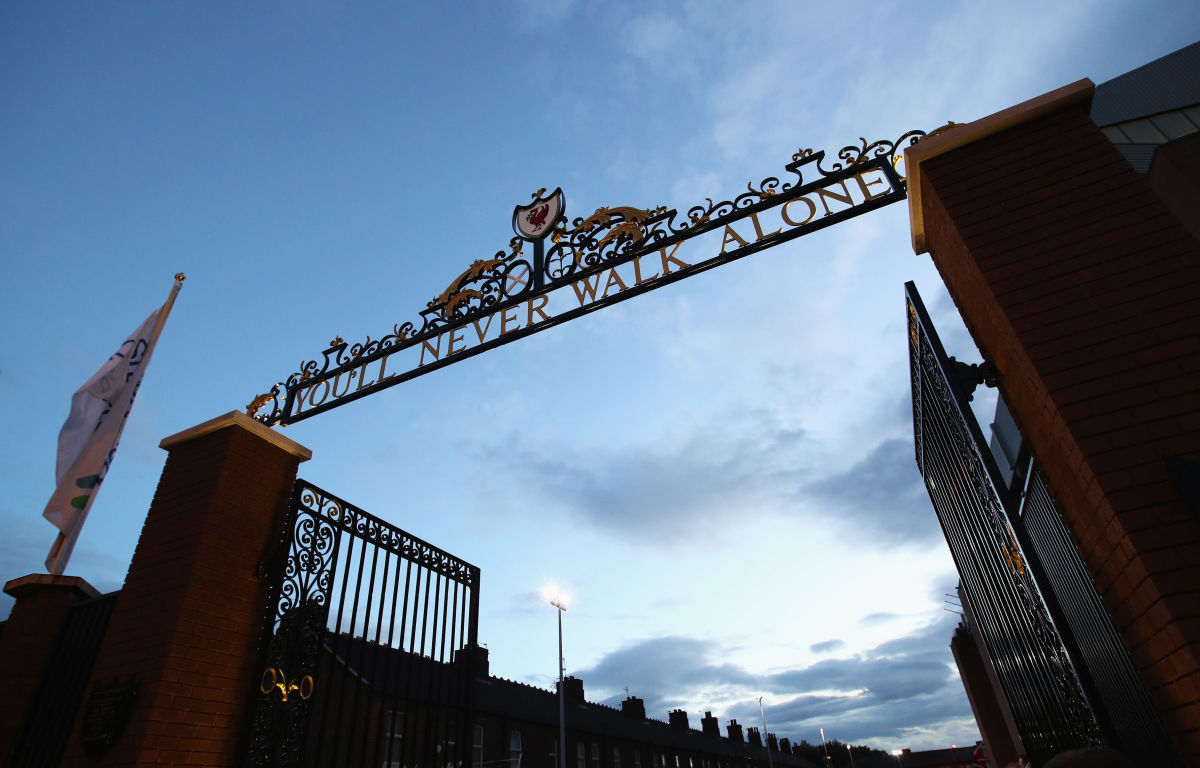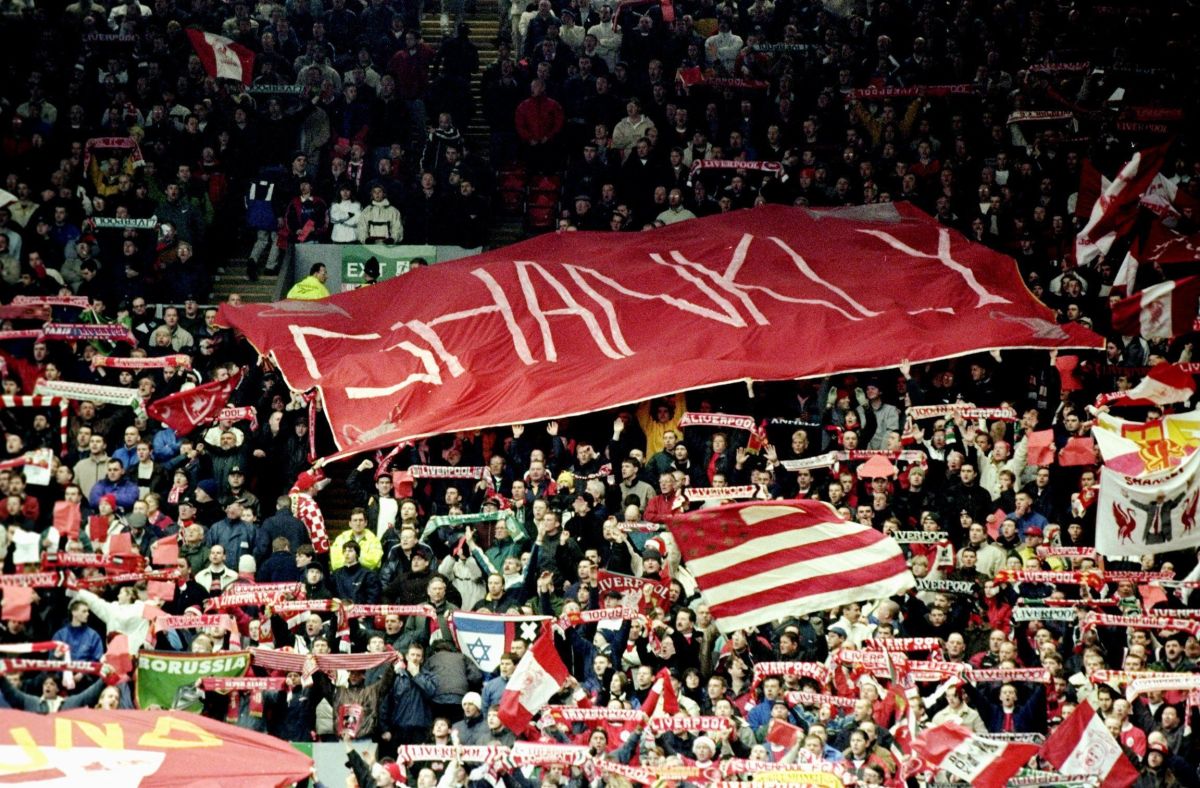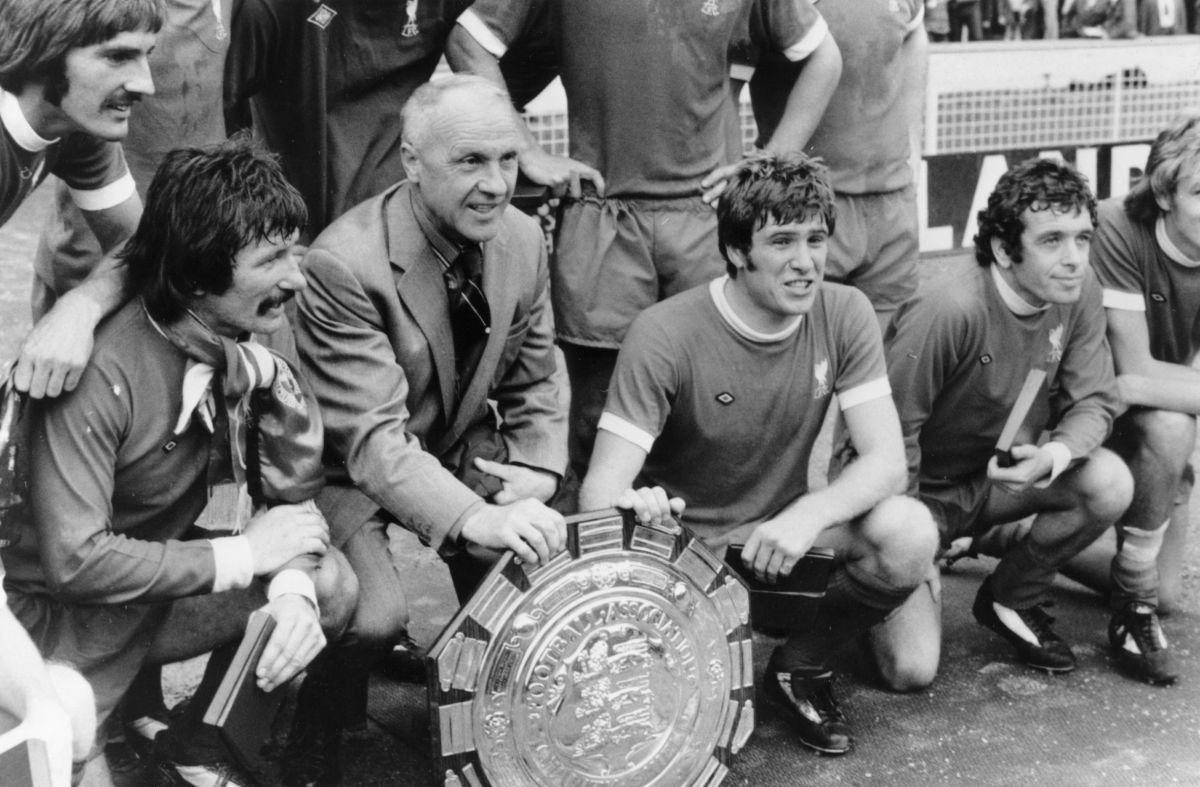Bill Shankly: The Innovative Motivator Who Rebuilt Liverpool From the Ground Up

Bill Shankly is number 19 in 90min's Top 50 Great Managers of All Time series. Follow the rest of the series over the course of the next four weeks.
Every football club has a figure so deeply ingrained in its values and traditions that to imagine one existing without the other just doesn't seem right.
For Manchester United, that's Sir Alex Ferguson. For Ajax, it's Johan Cruyff. For Arsenal, Arsene Wenger. And while some may point to Kenny Dalglish or Steven Gerrard as Mr. Liverpool, either of those men would be affronted at that suggestion, because the only true contender is Bill Shankly.
He wasn't the most successful Liverpool manager on paper. He didn't oversee a period of unparalleled dominance like those who came years later. But those who were later to the party, achieved more, and wrote their names into the club's history books on their own merit, did so on the foundations laid by one man and his vision to turn an unspectacular Second Division club into a dynastic titan, who would go unrivalled for decades on end.

Well-respected, hard-working and professional, Shankly's career began with a reputation as a tough-tackling right-half, whose pride and joy was that he never received a card from a referee for a mistimed challenge.
He was the first to view tackling as an art-form, and this helped him to a solid professional career with Carlisle United and Preston North End, managing five caps for his native Scotland in the process.
CAREER HONOURS
Football League Second Division (1961-62) |
|---|
Football League First Division (1963-64, 1965-66, 1972-72) |
FA Charity Shield (1964, 1965, 1966) |
FA Cup (1964/65, 1973/74) |
UEFA Cup Winners' Cup (1973/74) |
Upon retiring, it was Carlisle, with whom he'd started his playing career 16 years earlier, who gave him a route into coaching in 1948. In his early days as a coach, two things became clear: he was a perfectionist, and he wouldn't compromise.
His Carlisle departure, in fact, came about only after the board refused to pay his players the bonus they had promised for finishing in third-place. They had been struggling at the foot of the division when he was appointed three years earlier, and he took the lack of recognition of his players' efforts as so much of an insult that he could no longer continue.
He would take his brand of meticulous, psychology-focused management to Grimsby, and then onto Workington and Second Division side Huddersfield, in all three instances bringing a halt to downward spirals and getting the clubs back on track.
"A lot of football success is in the mind. You must believe you are the best and then make sure that you are."
Bill Shankly
He would frequently praise his players to the hilt in a bid to raise morale, even once describing his third-tier Grimsby side as 'pound for pound the best football team in England since the war', and it was this enthusiasm for football that eventually earned him the Liverpool job in 1959.
He had been keen on the job since he had been unsuccessfully interviewed for it prior to joining Grimsby, sensing a connection to the club and its supporters. A sleeping giant in the second tier, having previously won the First Division title five times but amidst a five-year stint outside the top division, from day one Shankly saw potential where no-one else did, and often raised eyebrows with his grand plans to turn the club into a dominant force.
"My idea was to turn Liverpool into a bastion of invincibility. Had Napoleon had that idea he would have conquered the bloody world. I wanted Liverpool to be untouchable. My idea was to build Liverpool up and up until eventually everyone had to submit and give in."
Bill Shankly
The eyebrows, however, seemed justifiably positioned at the time. In short, the club was a mess. Both Melwood and Anfield were crumbling, the playing squad was average at best, and even returning to the top tier, let alone dominating it, seemed a million miles away.
Affronted at what he was seeing at the club, Shankly wasted no time in starting a complete overhaul. He demanded that £3,000 was spent on renovating the stadium, and within a year had moved on as many as 24 players from his floundering ranks.
Where he saw value, however, was in the incumbent coaching staff, immediately recognising the abilities of Bob Paisley and Joe Fagan - each of whom would eventually have a famously turn at managing the legacy he would leave behind. Paisley, in particular, would become his tactician, while Shankly himself focused on motivating the players to devastating effect.

Training methods were also revamped, as Shankly opted to do away with the archaic long-distance stamina training that was the standard at the time. Instead, the vast majority of training was done on the pitch with a ball, in intense five-a-side games, vastly improving their ball skills and fitness levels.
This had a startling impact on the standard of performance, and as the surroundings began to improve, with Anfield and Melwood undergoing maintenance and redevelopment, so too did their showings on the pitch.
They would gain promotion to the top flight by 1962, and by 1964, their transformation was nearing completion, as they won a first First Division championship since 1947. Defender Ron Yeats and striker Ian St John - both of whom the board had been reluctant to invest in, but were backed irrefutably by Shankly - had played a central role in creating the core of a special new team.
TEAMS MANAGED
Carlisle United (1949-51) |
|---|
Grimsby Town (1951-54) |
Workington (1954-55) |
Huddersfield (1956-59) |
Liverpool (1959-74) |
While it was far from plain-sailing from here, as the club would only win one more title in the next seven years, the subtle forward strides that would become historic traditions continued to take place.
The club changed from white shorts and socks to the iconic all-red strips we see today, in a bid to make the players seem taller, and towards the end of Shankly's time in the hot-seat, he insisted on the installation of the famous 'THIS IS ANFIELD' sign prior to a match against Newcastle. This small change, designed to intimidate opponents, was mocked by the Magpies' Malcolm MacDonald, before his side lost 5-0.
As Shankly entered the 70s, and the closing years of his managerial career, the additions of Tommy Smith, Ian Callaghan and Chris Lawler, and future England captain Emylyn Hughes to the squad yielded the most successful run under his management. Between 1971-74, he added another First Division, another FA Cup, and the Reds' first ever European honour - the Cup Winners' Cup - to his honours list, and with his side playing the best football in the country by a considerable distance, the stage was set for an era of Napoleonic subjugation.

Famously, he notes his one regret from his time in Liverpool was failing to win the European Cup - Paisley his assistant-turned-successor, took until 1977 to manage that. But he, along with the five other managers who have been able to bring that famous trophy home, know that the feat would not have been near possible if not for the immortal Bill Shankly.
Number 50: Marcelo Bielsa - El Loco's Journey From Argentina to Footballing Immortality in Europe
Number 49: Vic Buckingham - How an Englishman Discovered Johan Cruyff & Pioneered Total Football
Number 48: Claudio Ranieri: A Ridiculed Tinkerman Who Masterminded One of Football's Greatest Ever Achievements
Number 47: Bill Nicholson: Mr Tottenham Hotspur, the First Double Winning Manager of the 20th Century
Number 46: Sven-Goran Eriksson: The Scudetto Winning Shagger Who Never Solved the Lampard-Gerrard Conundrum
Number 45: Sir Alf Ramsey: The Man Behind the 'Wingless Wonders' & England's Sole World Cup Triumph
Number 44: Antonio Conte: An Astute Tactician Whose Perfectionist Philosophy Reinvented the 3-5-2 Wheel
Number 43: Kenny Dalglish: The Beacon of Light in Liverpool's Darkest Hour
Number 42: Massimiliano Allegri: The Masterful Tactician Who Won Serie A Five Times in a Row
Number 41: Sir Bobby Robson: A Footballing Colossus Whose Fighting Spirit Ensured an Immortal Legacy
Number 40: Luis Aragones: Spain's Most Important Manager, the Atleti Rock and the Modern Father of Tiki-Taka
Number 39: Herbert Chapman: One of Football's Great Innovators & Mastermind Behind the 'W-M' Formation
Number 38: Carlos Alberto Parreira: The International Specialist Who Never Shied Away From a Challenge
Number 37: Franz Beckenbauer: The German Giant Whose Playing Career Overshadowed His Managerial Genius
Number 36: Viktor Maslov: Soviet Pioneer of the 4-4-2 & the Innovator of Pressing
Number 35: Rafa Benitez: The Conquerer of La Liga Who Masterminded That Comeback in Istanbul
Number 34: Zinedine Zidane: Cataloguing the Frenchman's Transition From Midfield Magician to Managerial Maestro
Number 33: Luiz Felipe Scolari: How the Enigmatic 'Big Phil' Succeeded as Much as He Failed on the Big Stage
Number 32: Jupp Heynckes: The Legendary Manager Who Masterminded 'the Greatest Bayern Side Ever'
Number 31: Vicente del Bosque: The Unluckiest Manager in the World Who Led Spain to Immortality
Number 30: Arsene Wenger: A Pioneering Who Became Invincible at Arsenal
Number 29: Udo Lattek: The Bundesliga Icon Who Shattered European Records
Number 28: Jock Stein: The Man Who Guided Celtic to Historic Heights & Mentored Sir Alex Ferguson
Number 27: Vittorio Pozzo: Metodo, Mussolini, Meazza & the Difficult Memory of a Two-Time World Cup Winner
Number 26: Jurgen Klopp: The Early Years at Mainz 05 Where He Sealed His 'Greatest Achievement'
Number 25:Mario Zagallo: Habitual World Cup Winner & Sculptor of Brazil's Joga Bonito Era
Number 24: Bela Guttmann: The Dance Instructor Who Changed Football Forever (and Managed...Just Everyone)
Number 23: Valeriy Lobanovskyi: The Scientist Who Dominated Football in the Soviet Union
Number 22: Louis van Gaal: The Stubborn Master Who Won 15 Major Trophies at 4 of the World's Greatest Clubs
Number 21: Otto Rehhagel: The 'King' Who Turned 150/1 Greek Outsiders into Champions of Europe
Number 20: Tele Santana: The 'Joga Bonito' Icon Who Helped Brazil Rediscover Their Love of Football
